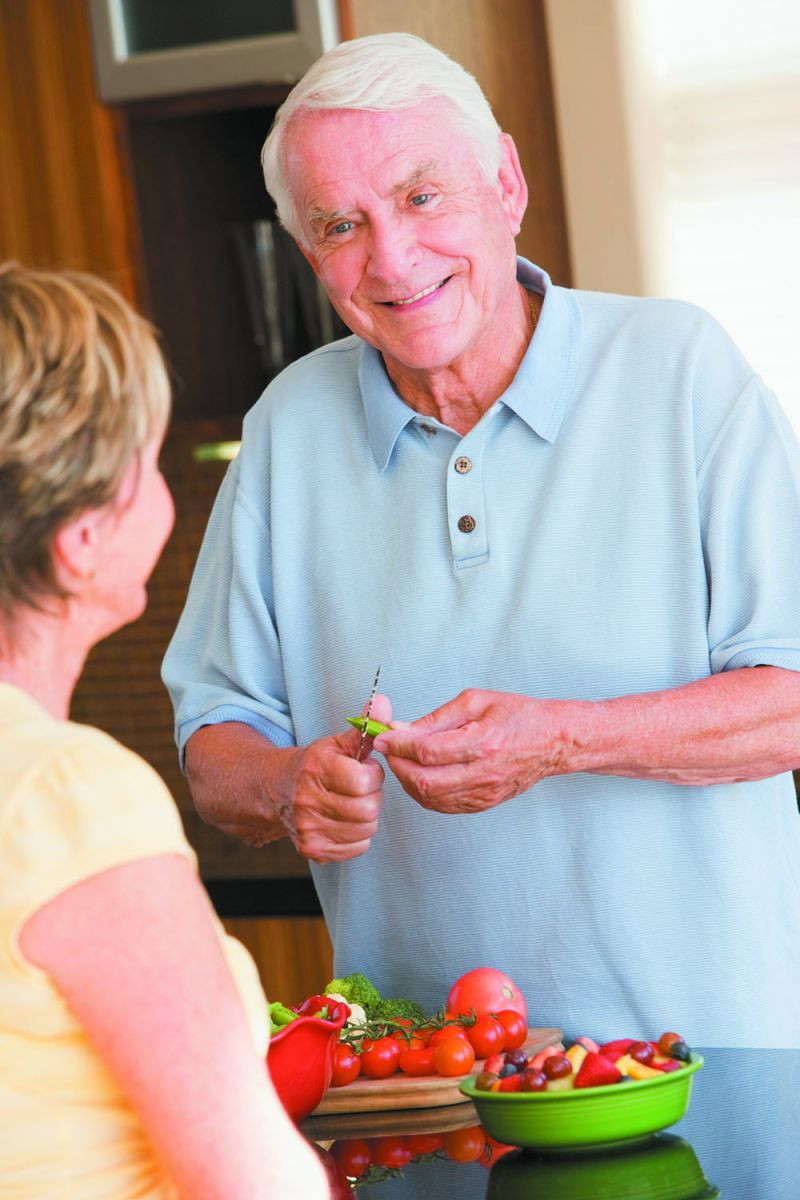
5 timeless habits for better health

What are the symptoms of prostate cancer?

Is your breakfast cereal healthy?

When pain signals an emergency: Symptoms you should never ignore

Does exercise give you energy?

Acupuncture for pain relief: How it works and what to expect

How to avoid jet lag: Tips for staying alert when you travel

Biofeedback therapy: How it works and how it can help relieve pain

Best vitamins and minerals for energy

Should you take probiotics with antibiotics?
Staying Healthy Archive
Articles
Watch out for two different Nutrition Facts labels
News briefs
Brace yourself for confusion when looking at food labels. The FDA is delaying the launch of its new Nutrition Facts label, which features clearer serving sizes, a new line for added sugars, and the actual amounts of vitamins and minerals (not just percentages of Daily Values). Large food makers were supposed to start using the updated design by July 2018, and smaller companies had until July 2019. Now the FDA is extending the deadlines to January 2020 and January 2021, respectively. The FDA says the extra time will give the agency a chance to lend guidance to manufacturers. But some food makers have already rolled out the new label on their products. This means consumers will see two different types of nutrition labels for years to come, which could be confusing. "Ironically, however, remember that fresh whole foods that don't have a label — especially fruits and vegetables — may be your wisest choice," says registered dietitian Kathy McManus, director of the Department of Nutrition at Harvard-affiliated Brigham and Women's Hospital.
Crave a better appetite
Losing the desire to eat can lead to many health problems, but there are ways to make mealtime more inspiring.
Remember when you could eat almost anything, lack of hunger was never an issue, and meals were a high point of your day? But now, perhaps not so much. What has changed?
"It's common for your appetite to diminish as you age, but the problem is that this can keep you from getting enough of the vital nutrients you need and can contribute to poor health," says Vasanti Malik, a nutrition research scientist at the Harvard T.H. Chan School of Public Health.
Feel the beat of heart rate training
Knowing your heart rate zone reminds you to maintain a proper level of exercise intensity.
Image: © ninikas/Thinkstock
Are you working hard during exercise — or hardly working?
Guidelines recommend at least 150 minutes of moderate-intensity exercise per week. But "moderate intensity" can vary per person. What is an effort to one person can be easy to another.
Roll away muscle pain
Foam rollers are easy-to-use fitness tools that can soothe pain, quicken recovery from exercise, and reduce injury.
As you age, occasional muscle soreness can become part of daily life, but if those aches and pains slow you down, you may find relief from a foam roller — a small, lightweight cylinder of compressed foam.
"A foam rolling routine is a simple way to keep your muscles loose and healthy, so you can stay more mobile and active," says physical therapist Erin Krey, clinical specialist with Harvard-affiliated Spaulding Rehabilitation Hospital.
Sedentary adults benefit from less than an hour of weekly exercise
In the journals
There's good news for seniors who have trouble reaching the recommended 150 minutes of exercise per week: a new study suggests that doing as little as 48 minutes can help some older adults.
The research, published online Aug. 18, 2017, by PLOS ONE, evaluated how different amounts of exercise benefited approximately 1,700 adults ages 70 to 89. Those chosen did less than 20 minutes of physical activity per week and were at a high risk for mobility issues.
Staying connected can improve your health
Try these strategies to help you fill your social calendar.
Image: © Mike Watson Images/Thinkstock
In an effort to ward off the loneliness that followed his wife's death, a 94-year-old man in Minnesota decided to install a swimming pool in his back yard for the neighborhood children. His back yard is now a hub of activity in the summer, filled with laughter, splashing children, and their parents and grandparents. And he's no longer alone.
While not everyone would be willing to go to such extreme lengths to make social connections, contact with other people should still be a top priority. Chronic loneliness does more than just make you bored; it can actually harm your health.
Antibiotics: Part of the cure or part of the problem?
Avoid taking these drugs when they're not needed.
Image: © grThirteen/Thinkstock
It's the time of year again for sneezing, sniffling, and sore throats. But if you don't escape it, you can just head to the doctor for an antibiotic, and you'll be healthy again in no time. Right?
Probably not.
"Each year millions of Americans are treated with antibiotics when they don't need to be," says Dr. Erica Shenoy, an infectious disease physician, who is associate chief of the Infection Control Unit at Massachusetts General Hospital and assistant professor of medicine at Harvard Medical School.
3 simple strategies to get the most from your yoga class
Choose your classes and instructors carefully to make sure you get the best experience.
It's no surprise that yoga is becoming increasingly popular. Research has shown not only that it's a good form of exercise, but also that it can reduce body aches and pains, specifically in the neck and lower back. Still, not all yoga classes are created equal. There are different types of yoga and different levels of difficulty, not to mention variations from one instructor or studio to another.
This means that some classes may be better than others for your unique health needs or fitness level. Below is a quick guide to help you find the best fit to make the most of your yoga class.
Study aims to boost water intake to prevent kidney stones
Research we're watching
Image: © wildpixel/Thinkstock
Can a high-tech water bottle help prevent painful kidney stones? The National Institutes of Health is hoping to find out. As many as one in every 11 people in the United States today has experienced a painful kidney stone. Kidney stones, a condition also referred to as nephrolithiasis or urolithiasis, are hard deposits that form inside the kidneys. They can be as small as a grain of sand or the size of a marble or larger. Symptoms of a stone include excruciating pain, interrupted urine flow, or bleeding inside the urinary tract. In short, kidney stones are definitely something you want to avoid. One way to keep stones from developing is to drink lots of water. The problem is, people who have had a stone often don't drink enough water to prevent new ones from forming, even when they're told how important it is to stay hydrated.
This trial, which will enroll 1,642 people, is trying to change that by using a "smart" water bottle that not only encourages people to drink a target amount of water each day, but also tracks their consumption using an app. People in the test group who reach their daily fluid intake targets will get financial incentives. Health coaches will provide added support to help participants achieve their goals. The findings could shed new light on how to get people to change their behavior to prevent this common and painful condition. For more information on the trial or to see if you qualify, visit www.health.harvard.edu/push.
Taking your core workout to the next level
Time can pass awfully slow when you're hoping to see results after embarking on a new exercise regimen. But if you do gentle core work consistently, you can start to see progress in as little as two to four weeks. Once you do, you might wonder when and how to progress from there or how to just maintain the gains you've made. Either way, our tips below will help.
When to progress
Repeatedly challenging muscles makes them stronger. As you get stronger, exercises in your routine will become easier to do. You're ready to progress if you can manage all four of these tasks throughout each exercise:

5 timeless habits for better health

What are the symptoms of prostate cancer?

Is your breakfast cereal healthy?

When pain signals an emergency: Symptoms you should never ignore

Does exercise give you energy?

Acupuncture for pain relief: How it works and what to expect

How to avoid jet lag: Tips for staying alert when you travel

Biofeedback therapy: How it works and how it can help relieve pain

Best vitamins and minerals for energy

Should you take probiotics with antibiotics?
Free Healthbeat Signup
Get the latest in health news delivered to your inbox!
Sign Up










